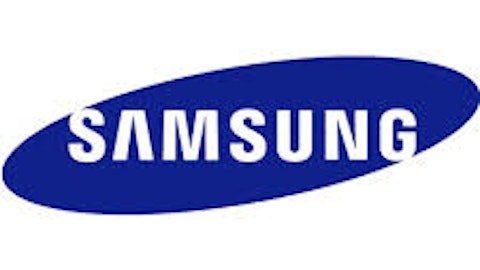
The rap
After trading at around $14 per share at one point, Research In Motion Ltd (NASDAQ:BBRY) dipped below $10 a share last week, losing about 30% of its modest market cap in a matter of days. And there was supposedly a lot of pressure on CEO Thorsten Heins this week when he went before shareholders Tuesday at the company’s annual shareholders meeting.
However, a funny thing happened: Heins must have wowed the crowd and said all the right things, because in the hours after the close of the meeting, the price of BlackBerry stock surged 3 percent. We do not know the substance of what he said, but whatever it was seemed to be music to attending investors’ ears, because it seemed that more shareholders either jumped on board or increased their stakes in the company.
The plan
So just when it seems that Research In Motion Ltd (NASDAQ:BBRY) might have a plan in place to actually survive, there was some news coming from the Wall Street Journal this week that revealed that BlackBerry is slated to announce a new round of major layoffs at the company in the very near future, and that the company has started that process by firing its head of U.S. sales, RichardPiasentin, in late June.
There is no immediate word as to the scope of the layoffs, but the word “massive” has been tossed around. Whether or not “massive” figures can be compared to the 5,000 layoffs the company reported in its previous fiscal year remains to be seen. By comparison, Nokia Corporation (ADR) (NYSE:NOK) laid off 10,000 jobs in 2012, with an additional 1,000 cut earlier this year, while other smartphone competitor Sony laid off 10,000 in its 2012 fiscal year.
So there’s that. Unless you’re Google Inc (NASDAQ:GOOG) or Apple Inc. (NASDAQ:AAPL) (ignoring Google’s job cuts at Motorola Mobility), it’s difficult to not expect some sort of labor force slimming. According to comScore, Research In Motion Ltd (NASDAQ:BBRY) held 4.8% of the smartphone platform market at the end of May, a decrease of 0.6 percentage points from three months earlier. Nokia Corporation (ADR) (NYSE:NOK), meanwhile, still holds 0.4% of the market with its Symbian OS, while it has helped Microsoft Corporation (NASDAQ:MSFT) attain 3.0% of the market.
Obviously, all of these bottom-feeders have a lot of ground to make up in comparison to Google Inc (NASDAQ:GOOG)’s 52.4% share and Apple Inc. (NASDAQ:AAPL)’s 39.2% mark, but it’s worth mentioning that Symbian was the No. 1 OS as little as two years ago. There’s still hope for BlackBerry and Nokia Corporation (ADR) (NYSE:NOK).
The questions
Still, the question remains: if these layoffs will happen at Research In Motion Ltd (NASDAQ:BBRY), and Heins spoke a good game that caused the stock to rise after he addressed the skittish investors, what could this mean?
Will BlackBerry indeed be moving away from the labor-intensive hardware portion of its smartphones and be focused on its business-oriented mobile software? Will it be narrowing its focus even more than that?
A software focus
Analyst opinions are mixed. According to ex-Apple CEO John Scully (via Bloomberg), BlackBerry’s “clock is running out,” but the company can still “come back if they drop hardware and focus on secure messaging.” It is true that in its latest conference call, many of BlackBerry’s most promising growth opportunities appeared to be from the software side of things, not hardware.
Aside from the eventual adoption of BlackBerry Messenger (BBM) on Apple Inc. (NASDAQ:AAPL) iPhones and Google Inc (NASDAQ:GOOG) Android-operated smartphones, the company is rolling out a capability called Secure Work Space for its BlackBerry Enterprise Services 10 (BES 10) platform.
Like the eventual goal of BBM, this feature allows BES 10’s mobile security to be installed on non-BlackBerry devices by corporate IT managers. Heins himself says it “gives us the opportunity to leverage our product capabilities and revenue opportunities across competing platforms.” The number of companies with BES 10 increased by 50% from May to late-June, and rests at 18,000.
Unfortunately, Research In Motion Ltd (NASDAQ:BBRY) does not report margins by segment, so we can’t say for sure exactly how much the company would benefit by dropping hardware altogether to concentrate on BBM, BES 10 and future software ventures. Still, the general consensus is that by focusing on software, BlackBerry could boost its margins—which rest near 34% on a gross basis—significantly. Nokia’s gross margin is near 29%, while Google’s rests at 57.4%. It’s not unreasonable to think that a software-exclusive BlackBerry could see gross margins double, à la Oracle Corporation (NASDAQ:ORCL) or Adobe.
Final thoughts
In short, there are a lot of “ifs” for Research In Motion Ltd (NASDAQ:BBRY) at the moment. If it can follow John Scully’s vision, it seems inevitable that profitability could increase, which in the tech world, is all that investors would need to see before buying in. We’d be watching the company closely, but it’s unlikely that we’ll hear any developments until its next quarterly earnings call in September. Check back here for updates on this situation.
Disclosure: none





